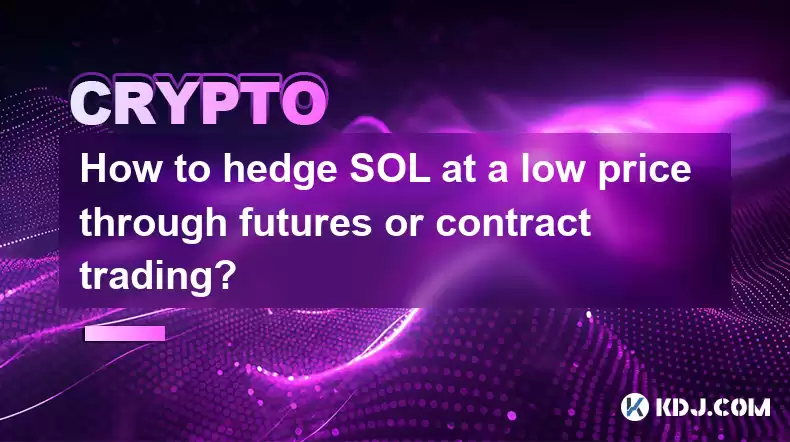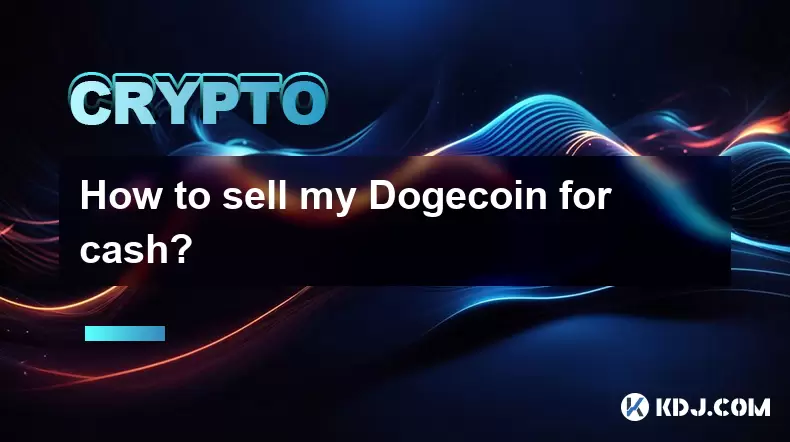-
 Bitcoin
Bitcoin $115100
1.27% -
 Ethereum
Ethereum $3675
2.71% -
 XRP
XRP $2.995
1.45% -
 Tether USDt
Tether USDt $1.000
0.02% -
 BNB
BNB $769.8
2.64% -
 Solana
Solana $168.0
3.25% -
 USDC
USDC $0.9999
-0.01% -
 TRON
TRON $0.3371
1.48% -
 Dogecoin
Dogecoin $0.2051
3.36% -
 Cardano
Cardano $0.7394
2.30% -
 Hyperliquid
Hyperliquid $38.15
0.42% -
 Stellar
Stellar $0.3966
-0.36% -
 Sui
Sui $3.486
2.93% -
 Chainlink
Chainlink $16.72
2.52% -
 Bitcoin Cash
Bitcoin Cash $568.0
4.36% -
 Hedera
Hedera $0.2440
2.59% -
 Ethena USDe
Ethena USDe $1.001
0.04% -
 Avalanche
Avalanche $22.16
2.06% -
 Litecoin
Litecoin $119.1
-0.73% -
 UNUS SED LEO
UNUS SED LEO $8.991
0.04% -
 Toncoin
Toncoin $3.232
-0.39% -
 Shiba Inu
Shiba Inu $0.00001233
2.82% -
 Uniswap
Uniswap $9.717
2.53% -
 Polkadot
Polkadot $3.664
1.85% -
 Dai
Dai $1.000
0.01% -
 Monero
Monero $281.2
-3.89% -
 Bitget Token
Bitget Token $4.350
1.55% -
 Cronos
Cronos $0.1428
5.07% -
 Pepe
Pepe $0.00001050
3.68% -
 Aave
Aave $262.3
3.54%
How to hedge SOL at a low price through futures or contract trading?
To hedge Solana (SOL) at a low price, use futures or perpetual contracts, but be aware of risks like liquidation and funding rate fluctuations. Always manage risk carefully.
Mar 27, 2025 at 05:36 pm

Understanding Solana (SOL) Price Volatility and Hedging Strategies
Solana (SOL), like other cryptocurrencies, experiences significant price volatility. This volatility presents both opportunities and risks for investors. Hedging is a risk management strategy designed to mitigate potential losses from adverse price movements. This article explores how to hedge your SOL holdings at a low price using futures or contract trading. Understanding the underlying mechanisms is crucial before implementing any hedging strategy. Remember that all trading involves risk, and losses are possible.
Futures Contracts for SOL Hedging
Futures contracts are agreements to buy or sell an asset at a predetermined price on a specific future date. In the context of SOL, a futures contract allows you to lock in a price for SOL at a future point. This can be beneficial if you believe the price of SOL will decline.
Shorting SOL Futures: If you're concerned about a SOL price drop, you can short SOL futures. This involves agreeing to sell SOL at a specific price in the future. If the price indeed drops, you can buy SOL at the lower market price and fulfill your contract, profiting from the difference.
Choosing the Right Exchange: Selecting a reputable cryptocurrency exchange that offers SOL futures contracts is crucial. Consider factors like trading volume, liquidity, and security measures. Ensure the exchange is regulated where possible to mitigate risks.
Understanding Leverage: Futures trading often involves leverage, allowing you to control a larger position with a smaller amount of capital. While leverage amplifies potential profits, it also significantly magnifies potential losses. Use leverage cautiously.
Managing Risk: Implement proper risk management techniques, such as setting stop-loss orders to limit potential losses. Diversification across multiple assets is also recommended to reduce overall portfolio risk. Never invest more than you can afford to lose.
Perpetual Contracts for SOL Hedging
Perpetual contracts are similar to futures contracts but don't have an expiration date. They track the price of the underlying asset (SOL) and allow for continuous trading. They often utilize funding rates to maintain price parity with the spot market.
Shorting Perpetual Contracts: Similar to futures, shorting perpetual contracts allows you to profit from a price decline in SOL. You agree to sell SOL at the current price, hoping to buy it back at a lower price later.
Funding Rates: Perpetual contracts utilize funding rates to prevent significant price discrepancies between the contract and the spot market. Positive funding rates mean you pay the long positions, while negative rates mean you receive payments. Understanding funding rates is crucial for managing your trading costs.
Liquidation Risk: High leverage in perpetual contracts increases the risk of liquidation. Liquidation occurs when your position's losses exceed your margin, forcing the exchange to automatically close your position.
Exchange Fees: Be mindful of exchange fees associated with perpetual contracts, including trading fees, funding rates, and potentially withdrawal fees. These fees can impact your overall profitability.
Hedging Strategies at a Low Price
Achieving effective hedging at a low price requires careful consideration of market conditions and your risk tolerance.
Timing the Market: Attempting to time the market to enter a short position at the absolute bottom is extremely difficult and risky. Focus on identifying potential support levels or technical indicators that suggest a price reversal.
Gradual Entry: Instead of entering a large short position at once, consider a gradual entry strategy. This reduces your exposure to sudden price movements and allows you to average your entry price.
Trailing Stop-Loss Orders: Use trailing stop-loss orders to protect your profits as the price moves in your favor. These orders automatically adjust the stop-loss price as the market moves, limiting potential losses while allowing for profit capture.
Combining Strategies: Consider combining hedging strategies, such as shorting futures contracts and simultaneously holding a small amount of SOL, to reduce your overall risk exposure.
Minimizing Risk and Maximizing Potential
Effective hedging requires a deep understanding of futures and perpetual contracts, as well as a disciplined approach to risk management. Remember that even with hedging, losses are possible.
Paper Trading: Before using real capital, practice your hedging strategies using a paper trading account. This allows you to simulate trading without risking your funds.
Fundamental Analysis: Combine technical analysis with fundamental analysis of Solana's project and its underlying technology. Understanding the project's strengths and weaknesses can help you make more informed trading decisions.
Stay Updated: The cryptocurrency market is constantly evolving. Stay updated on market trends, news, and regulatory developments that could impact SOL's price.
Frequently Asked Questions
Q: What are the risks associated with hedging SOL using futures or perpetual contracts?
A: The primary risks include liquidation due to high leverage, adverse price movements exceeding your stop-loss orders, and funding rate fluctuations in perpetual contracts. Market manipulation and exchange failures also pose potential risks.
Q: How can I determine the optimal leverage for hedging SOL?
A: The optimal leverage depends on your risk tolerance and market conditions. Start with lower leverage and gradually increase it as you gain experience and confidence. Never use leverage that could lead to significant losses.
Q: Are there alternatives to futures and perpetual contracts for hedging SOL?
A: Yes, options contracts can also be used for hedging. Options offer more flexibility but require a deeper understanding of options trading strategies. Diversification across other cryptocurrencies can also help reduce your overall risk exposure.
Q: How do I choose a reputable exchange for trading SOL futures or perpetual contracts?
A: Consider factors such as trading volume, liquidity, security measures, regulatory compliance, and user reviews when selecting an exchange. Research the exchange thoroughly before depositing any funds.
Q: What is the difference between futures and perpetual contracts for hedging?
A: Futures contracts have a defined expiration date, while perpetual contracts do not. Perpetual contracts use funding rates to maintain price parity with the spot market. Both can be used for hedging, but they have different risk and reward profiles.
Disclaimer:info@kdj.com
The information provided is not trading advice. kdj.com does not assume any responsibility for any investments made based on the information provided in this article. Cryptocurrencies are highly volatile and it is highly recommended that you invest with caution after thorough research!
If you believe that the content used on this website infringes your copyright, please contact us immediately (info@kdj.com) and we will delete it promptly.
- BlockDAG, Litecoin, and Cardano: Charting the Course in Crypto's Dynamic Waters
- 2025-08-07 09:09:06
- Fireverse Token: Igniting a Musical Revolution in Web3
- 2025-08-07 08:27:45
- Ethereum, L2 Withdrawals, and Decentralization: A New Yorker's Take
- 2025-08-07 08:32:33
- Avalanche vs. Ruvi AI: Daily Sales Tell a Story of Crypto Disruption
- 2025-08-07 06:29:35
- DeSoc: The Crypto to Buy Now for a Decentralized Future (and Maybe 43x Gains!)
- 2025-08-07 06:50:16
- Arctic Pablo Coin: Riding the Meme Coin Wave with a Deflationary Twist
- 2025-08-07 07:18:13
Related knowledge

How to sell my Bitcoincoin for cash?
Aug 07,2025 at 02:14pm
Understanding the Basics of Selling Dogecoin for CashSelling Dogecoin for cash involves converting your DOGE tokens into a fiat currency such as USD, ...

What is Chainlink (LINK)?
Jul 22,2025 at 02:14am
Understanding Chainlink (LINK): The Decentralized Oracle NetworkChainlink is a decentralized oracle network designed to bridge the gap between blockch...

What is Avalanche (AVAX)?
Jul 22,2025 at 08:35am
What is Avalanche (AVAX)?Avalanche (AVAX) is a decentralized, open-source blockchain platform designed to support high-performance decentralized appli...

What is Polkadot (DOT)?
Jul 19,2025 at 06:35pm
Understanding the Basics of Polkadot (DOT)Polkadot (DOT) is a multi-chain network protocol designed to enable different blockchains to transfer messag...

What is Litecoin (LTC)?
Jul 23,2025 at 11:35am
Overview of Litecoin (LTC)Litecoin (LTC) is a peer-to-peer cryptocurrency that was created in 2011 by Charlie Lee, a former Google engineer. It is oft...

What is Monero (XMR)?
Jul 21,2025 at 10:07am
What is Monero (XMR)?Monero (XMR) is a decentralized cryptocurrency designed to provide enhanced privacy and anonymity for its users. Unlike Bitcoin a...

How to sell my Bitcoincoin for cash?
Aug 07,2025 at 02:14pm
Understanding the Basics of Selling Dogecoin for CashSelling Dogecoin for cash involves converting your DOGE tokens into a fiat currency such as USD, ...

What is Chainlink (LINK)?
Jul 22,2025 at 02:14am
Understanding Chainlink (LINK): The Decentralized Oracle NetworkChainlink is a decentralized oracle network designed to bridge the gap between blockch...

What is Avalanche (AVAX)?
Jul 22,2025 at 08:35am
What is Avalanche (AVAX)?Avalanche (AVAX) is a decentralized, open-source blockchain platform designed to support high-performance decentralized appli...

What is Polkadot (DOT)?
Jul 19,2025 at 06:35pm
Understanding the Basics of Polkadot (DOT)Polkadot (DOT) is a multi-chain network protocol designed to enable different blockchains to transfer messag...

What is Litecoin (LTC)?
Jul 23,2025 at 11:35am
Overview of Litecoin (LTC)Litecoin (LTC) is a peer-to-peer cryptocurrency that was created in 2011 by Charlie Lee, a former Google engineer. It is oft...

What is Monero (XMR)?
Jul 21,2025 at 10:07am
What is Monero (XMR)?Monero (XMR) is a decentralized cryptocurrency designed to provide enhanced privacy and anonymity for its users. Unlike Bitcoin a...
See all articles

























































































